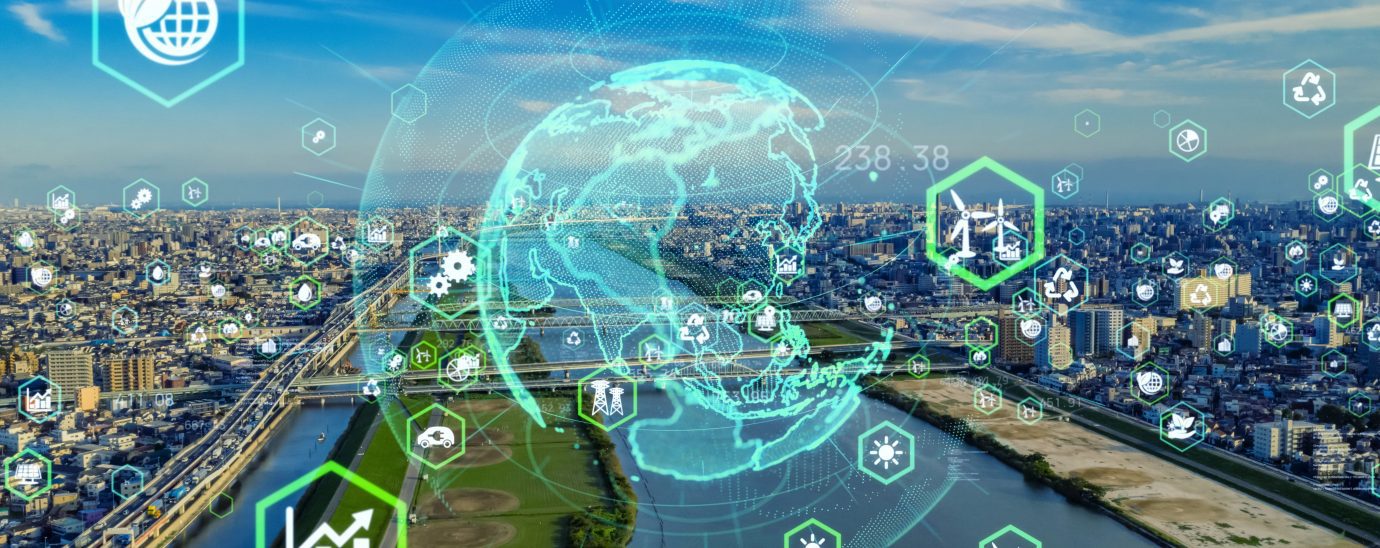A smart upgrade: how connected technology is transforming the water utility industry

Matthew Margetts, Director of Sales and Marketing at Smarter Technologies, discusses how connected technology is transforming the water utility industry, with automated meter readers (AMRs) allowing local governments, organisations and businesses to help limit water scarcity, improve water efficiency and drive a more environmentally friendly future for all.
Smart water metering is taking off in the water sector. In total revenue terms, the smart share of AMI and AMR has almost doubled—from 28.2% in 2012 to 46.7% in 2020. This adoption has largely been driven by water shortages and the importance of leakage detection and water preservation, customer billing and service requirements, detection of pipe faults and asset management.
As economies recover from the pandemic, stakeholders are investing in digitalisation, and the global smart water meters market is expected to record significant growth of 7.7% between 2020 and 2026. A report by Global Industry Analysts forecasts that investments in smart water metering to jump from US$2.9bn in 2020 to $4.6bn by 2026. The market will be led by the United States, Canada, China, Japan, and Germany.
And with water leakages costing the global industry $39bn a year in lost revenue, it’s connected technology that is the driving force for change for utility companies, local governments and businesses around the world.
The drivers of smart meter investment include:
- Addressing water scarcity
- Detecting leakages
- Eliminating non-revenue water
- Updating aging infrastructure
- Dealing with rapid urbanisation
- The enactment of supporting legislation
- Water conservation
- Improving operational savings
- Ensuring accurate water bills
- Developing smart cities
AMR for Water Suppliers
In a recent interview, Mark Cooper, head of smart metering at Thames Water, said that metering is ‘absolutely at the heart of water resource management plans’, reducing abstraction and improving resilience. Thames Water services most of Greater London and beyond. Over the past six years, the company has increased its smart water meter penetration from around 34% to 49%, and recently reached the milestone of half a million devices. The overriding goal of smart metering is to take less water from the environment and secure water supplies for future generations.
The benefits of AMRs
The significant difference between a traditional meter and an AMR water meter is the means and frequency of data collection. The real-time nature of AMR data allows for a wide range of benefits as it enables customers and businesses to work to the minute to transform costs and consumption.
Cost-effectiveness
The thought of overhauling an entire metering system can be overwhelming and prohibitive to many providers. An important benefit of AMRs is that they can be retrofitted onto existing meters. This makes it a much simpler transition to a smart solution.
Saving precious resources
Information from AMRs can be invaluable in encouraging households and businesses to use less water and spread demand at peak times. Giving customers an additional view of their usage encourages them to monitor their output more closely. When it comes to water, for example, a continuous flow could indicate a leak that needs to be attended to. Even having a closer eye on day-to-day consumption helps consumers understand their usage patterns better and make changes to reduce consumption as a result. This is especially important for places experiencing water stress.
For water utility companies, linking smart meter data with acoustic logger data and other devices helps better target leakage across networks. This helps customers and water utilities reduce the amount of water they take from the environment. The information gleaned from AMRs can be compiled and analysed to help companies understand where water is going, how much is consumed and what is being wasted.
Saving human resources
Manually reading meters is time-consuming, and can also be dangerous when meters are in hard-to-access locations. Having the process automated saves a significant amount of time and helps to keep employees safe.
Customer engagement
Smart metering enables better customer engagements and relationships. By providing customers with more information about their consumption, you empower them to take control of their energy use. They can also be ensured of the accuracy of their water readings and billing.
READ MORE:
- How will the smart city of the future look?
- Smart tech crucial to rebuilding trust in public transport after the pandemic
- A closer look at the first smart self-disinfecting door handle
- CTOs share advice to their 25-year-old selves
With these benefits in mind, it’s no surprise that utility companies around the world are adopting AMR technology as an easy-to-implement solution to reduce operational expenditure as well as water consumption. Partnering with an experienced AMR provider makes the transition all the more seamless and a smarter experience for all stakeholders.
For more news from Top Business Tech, don’t forget to subscribe to our daily bulletin!
